
Rix Research & Media welcomed attendees from across the country to the first Rix Community Event of 2016.
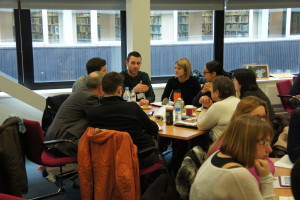
Around 40 people gathered at Rix’s base at the University of East London to meet, talk, share experiences and hear about new ideas.
We had managers from local authorities, schools, colleges, hospital schools, as well as parents and care professionals.
There was a great turnout and everyone came full of enthusiasm, willing to learn and wanting to share. The agenda for the day allowed plenty of opportunity for discussion, with a combination of presentations, workshops and feedback sessions.
People were at different stages in using Rix Wikis and rolling them out across their services or organisations, so the day focused on case studies of best practice, particularly in implementing wikis in schools and local authorities, and the importance of engaging parents.
Presentations
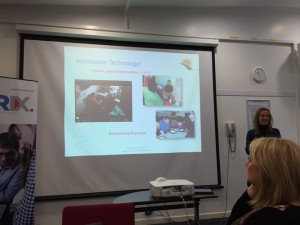 Charlton Park Academy has adopted the multimedia advocacy approach throughout the school and all 240 pupils have Rix Wikis. Kathryn Stowell, Head of Outreach and AAC, talked about her experience of helping students and staff – and parents – to understand how to use wikis to communicate and share information.
Charlton Park Academy has adopted the multimedia advocacy approach throughout the school and all 240 pupils have Rix Wikis. Kathryn Stowell, Head of Outreach and AAC, talked about her experience of helping students and staff – and parents – to understand how to use wikis to communicate and share information.
Ofsted has now highlighted the use of Rix Wikis at Charlton Park Academy in two reports, stating that: ‘Wikis are person centred and empowering, as students can share information, express themselves and celebrate their progress and achievements in a safe way.’
James Mannion, Business Systems Project Manager from Achieving for Children (AfC) explained how they have started to roll out wikis within the London boroughs of Richmond and Kingston.
AfC has partnered with Rix to provide children and young people with learning disabilities with wikis, to help them take control of their lives and make sure their views, needs and aspirations are clearly heard. He believes the wikis will be invaluable in implementing the new Education, Health and Care plans.
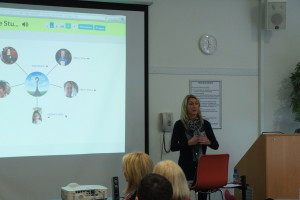
Sam Goncalves is a parent of a child with special educational needs and disabilities and she has been using a Rix Wiki for some years now.
She believes that gaining parents’ involvement in co-creating a Rix Wiki can only be achieved if they understand the benefits that it will bring and the difference it will make. In Sam’s view, a Rix Wiki can really strengthen family relationships. It provides a memory bank and helps celebrate achievements and progress. It is not additional work but is simply working in a different way.
Sam also presented a series of case studies from a group of parents, who have children aged between 4 and 19 with varying disabilities and complex needs, all of whom either had an EHCP or were in the process of an EHCP.
Workshops
There was a choice of three workshops which ran immediately after lunch. Attendees could focus on a particular aspect of using Rix Wikis that was of interest to them and take part in a more detailed question and answer session.
- Communications and marketing
- Portal Training
- Working with sound
Awards
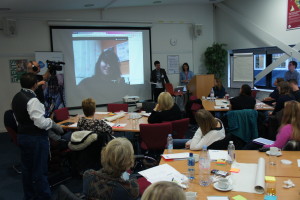
Rix was delighted to award a record number of Wiki Champion Certificates to those people who have been outstanding in their dedication, passion and implementation of Rix Wikis.
Congratulations to:
Amy Donaghey, Charlton Park Academy
Bonnie Mckevitt, Charlton Park Academy
Charlie Harkett, Charlton Park Academy
Cheri Dunsford, Charlton Park Academy
Claire Hennings, Charlton Park Academy
Derren Fay, Charlton Park Academy
Eleanor Tweedie, Children’s Hospital School, Notts
Elizabeth Milton, Children’s Hospital School, Notts
Gill Chandler, Charlton Park Academy
Harry Thomas, Charlton Park Academy
Jack Binch, A Place To Call Our Own, Mansfield
John Galloway, author and ICT teacher
Lisa McQuillan, Charlton Park Academy
Mark Mason, Waltham Forest
Shane Goncalves, Charlton Park Academy
Melissa Johns, Royal Free Hospital School
Nick Richards, Charlton Park Academy
Prem Chana, Charlton Park Academy
Rachel Dunlop, Charlton Park Academy
Richard Lohan, Camden
Scott Kennedy, JET, Tower Hamlets
Sian Welshman, Charlton Park Academy
Steph Guyott, Charlton Park Academy
Yasmin Al-Temimi, Charlton Park Academy
Feedback
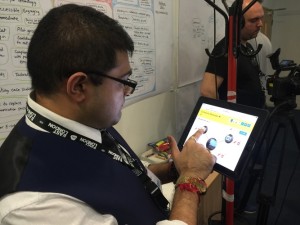 We are always keen to hear your views and opinions. Many attendees completed Feedback Forms about the event which has been very helpful – thank you to those who did so.
We are always keen to hear your views and opinions. Many attendees completed Feedback Forms about the event which has been very helpful – thank you to those who did so.
Most people felt the event had been very useful, with 83% scoring it 8 out of 10 or higher. Specific comments about what people got out of the day were:
- Lots of ideas how to move forward
- Valuable info and practice sharing as well as feeling like part of a valued Rix community member!
- How important it was for the Wikis to be person centred and how to get parents involved. Also an introduction about to manage a portal.
- It was a great chance to network
- I feel I can now start to use them in my school and that hopefully this will be successful as I have learnt about what works and what is challenging from others
- The positive impacts of how Wikis support children with SEN and how versatile Wikis are
- It was helpful to consider ways that Wikis can be used for PCP and EHC
It should be noted that lunch was also very popular!
Ideas for future events were also suggested:
- Involve more users in events (students).
- Events with a more specific focus – e.g. parent, schools, local authority specific event
- Have a session on safe-guarding, with guidance on best practice.
Rix Wiki Master, Ajay Choksi, created a wiki of the Rix Community event on the day. This has now been updated with notes on the sessions, all the presentations and the video case studies, as well as contact details.
It can be found at https://www.rixwiki.org/gbr/home/community-event/.


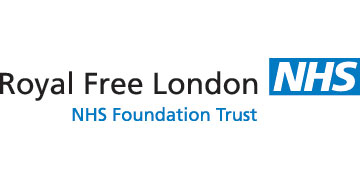 The Royal Free Hospital Children’s School (RFHCS) is a community Special School for pupils aged 5 to 16. It offers high quality education for all children who are inpatients at the Royal Free Hospital and for some children who are not inpatients but who are receiving support from medical or mental health services and may benefit from attending the school on a daily basis. The school operates within a multidisciplinary framework; working closely with a range of professionals including consultant doctors, mental health professionals, physiotherapists, speech therapists and other agencies.
The Royal Free Hospital Children’s School (RFHCS) is a community Special School for pupils aged 5 to 16. It offers high quality education for all children who are inpatients at the Royal Free Hospital and for some children who are not inpatients but who are receiving support from medical or mental health services and may benefit from attending the school on a daily basis. The school operates within a multidisciplinary framework; working closely with a range of professionals including consultant doctors, mental health professionals, physiotherapists, speech therapists and other agencies.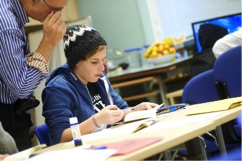 What were your reasons for doing this development work?
What were your reasons for doing this development work?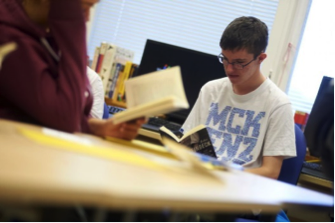 Who were the identified target learners?
Who were the identified target learners?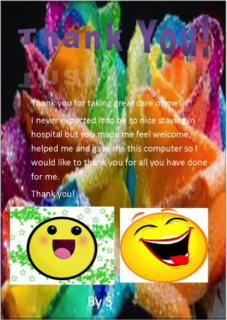 What did you do – what teaching approaches did you use?
What did you do – what teaching approaches did you use?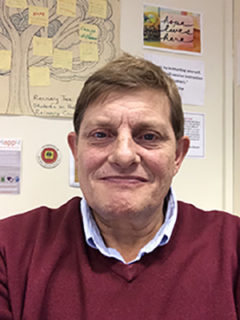
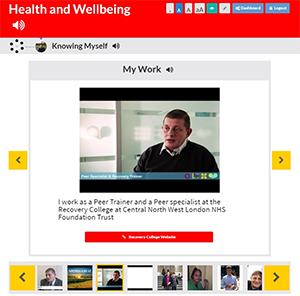
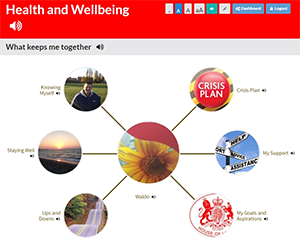 Waldo is excited to bring the Wiki to mental health services and believes that it is a
Waldo is excited to bring the Wiki to mental health services and believes that it is a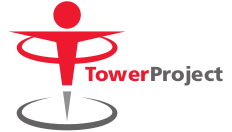 The Tower Project is a community based voluntary sector organisation and leading service provider for children and adults with a learning disability, sensory disability, autism, physical disability or health related issue.
The Tower Project is a community based voluntary sector organisation and leading service provider for children and adults with a learning disability, sensory disability, autism, physical disability or health related issue.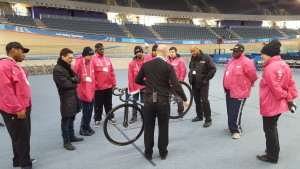 Scott Kennedy, Training and Development Manager for JETS, is using a Multimedia Advocacy approach and Rix Wikis to enable the young people he works with to showcase their work experience, their skills and aptitudes.
Scott Kennedy, Training and Development Manager for JETS, is using a Multimedia Advocacy approach and Rix Wikis to enable the young people he works with to showcase their work experience, their skills and aptitudes.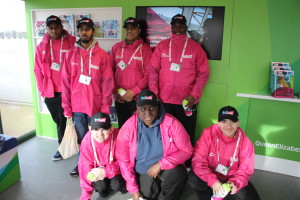 JETS is currently involved in a new project with Hackney College, helping around 10 young people gain specific work experience in three different settings over four months. They will be working at the Olympic Park in Stratford, setting up an Easter market stall in Spitalfields Market and rolling up their sleeves to get stuck in at a social enterprise which provides a valeting service for community transport vehicles.
JETS is currently involved in a new project with Hackney College, helping around 10 young people gain specific work experience in three different settings over four months. They will be working at the Olympic Park in Stratford, setting up an Easter market stall in Spitalfields Market and rolling up their sleeves to get stuck in at a social enterprise which provides a valeting service for community transport vehicles.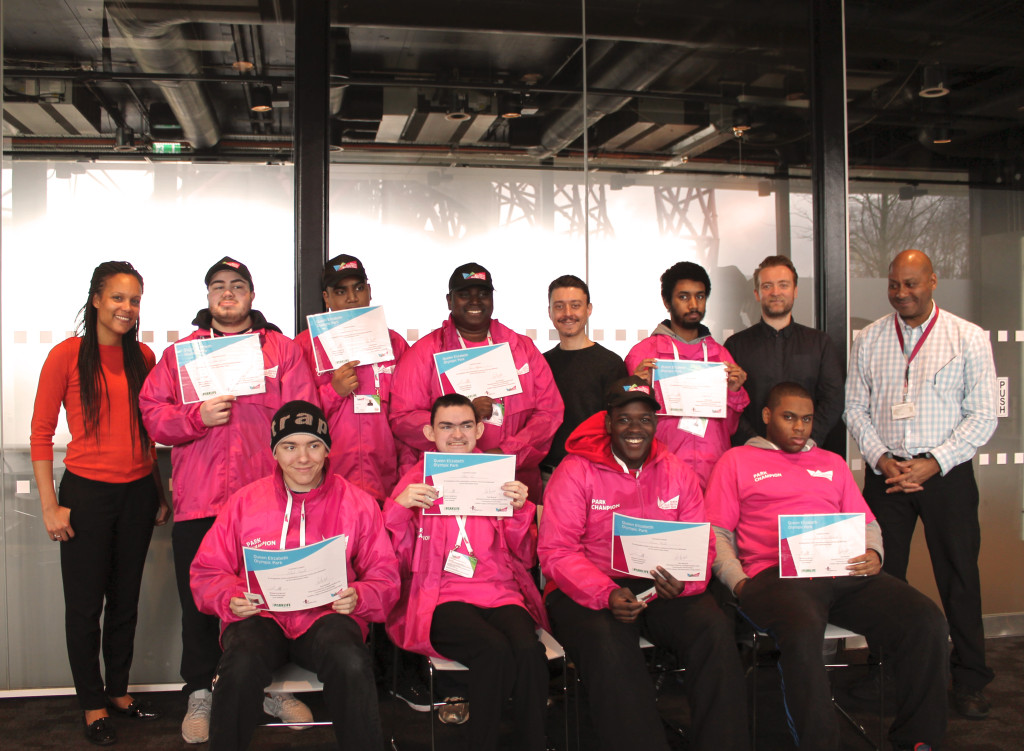
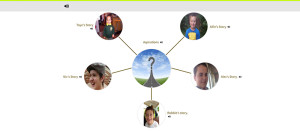 Parents very much welcome the opportunity for professionals working with their child/YP to provide video input into their Wiki; all felt by having a Wiki their child’s/YP’s EHCP could be better co-ordinated in a joined up way. For example, one child’s paediatrician provided medical information on their Wiki to aid with secondary school transition.
Parents very much welcome the opportunity for professionals working with their child/YP to provide video input into their Wiki; all felt by having a Wiki their child’s/YP’s EHCP could be better co-ordinated in a joined up way. For example, one child’s paediatrician provided medical information on their Wiki to aid with secondary school transition. Achieving for Children (AfC) is a social enterprise company set up by Kingston and Richmond Councils to provide targeted help and support to children and families in need within the two London boroughs. It has partnered with Rix Research & Media to pioneer the use of Multimedia Advocacy and the Rix Wiki tool and training to embed person-centred approaches which, it believes will be invaluable in implementing the new Education, Health and Care Plans (EHCP) for those with learning disabilities in the area.
Achieving for Children (AfC) is a social enterprise company set up by Kingston and Richmond Councils to provide targeted help and support to children and families in need within the two London boroughs. It has partnered with Rix Research & Media to pioneer the use of Multimedia Advocacy and the Rix Wiki tool and training to embed person-centred approaches which, it believes will be invaluable in implementing the new Education, Health and Care Plans (EHCP) for those with learning disabilities in the area.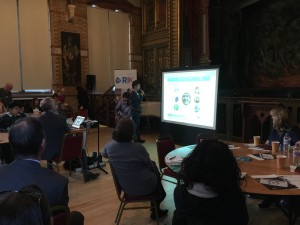 James Mannion, Business Systems Project Manager for AfC, said, “We want to empower our children and young people who face challenges because of their communications difficulties, to show how they can use Wikis to get across their preferences and viewpoints by using pictures, sounds, video and words – to give them a voice and enable them to take control of their lives. We call this multimedia advocacy.
James Mannion, Business Systems Project Manager for AfC, said, “We want to empower our children and young people who face challenges because of their communications difficulties, to show how they can use Wikis to get across their preferences and viewpoints by using pictures, sounds, video and words – to give them a voice and enable them to take control of their lives. We call this multimedia advocacy.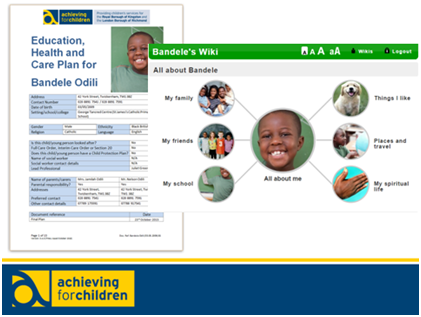 As a result of the event, there are a further four schools who want to lead the way using Multimedia Advocacy and Rix Wikis and there are also two families who want to use Wikis for their annual reviews.
As a result of the event, there are a further four schools who want to lead the way using Multimedia Advocacy and Rix Wikis and there are also two families who want to use Wikis for their annual reviews.

 Charlton Park Academy has adopted the multimedia advocacy approach throughout the school and all 240 pupils have Rix Wikis. Kathryn Stowell, Head of Outreach and AAC, talked about her experience of helping students and staff – and parents – to understand how to use wikis to communicate and share information.
Charlton Park Academy has adopted the multimedia advocacy approach throughout the school and all 240 pupils have Rix Wikis. Kathryn Stowell, Head of Outreach and AAC, talked about her experience of helping students and staff – and parents – to understand how to use wikis to communicate and share information.

 We are always keen to hear your views and opinions. Many attendees completed Feedback Forms about the event which has been very helpful – thank you to those who did so.
We are always keen to hear your views and opinions. Many attendees completed Feedback Forms about the event which has been very helpful – thank you to those who did so.